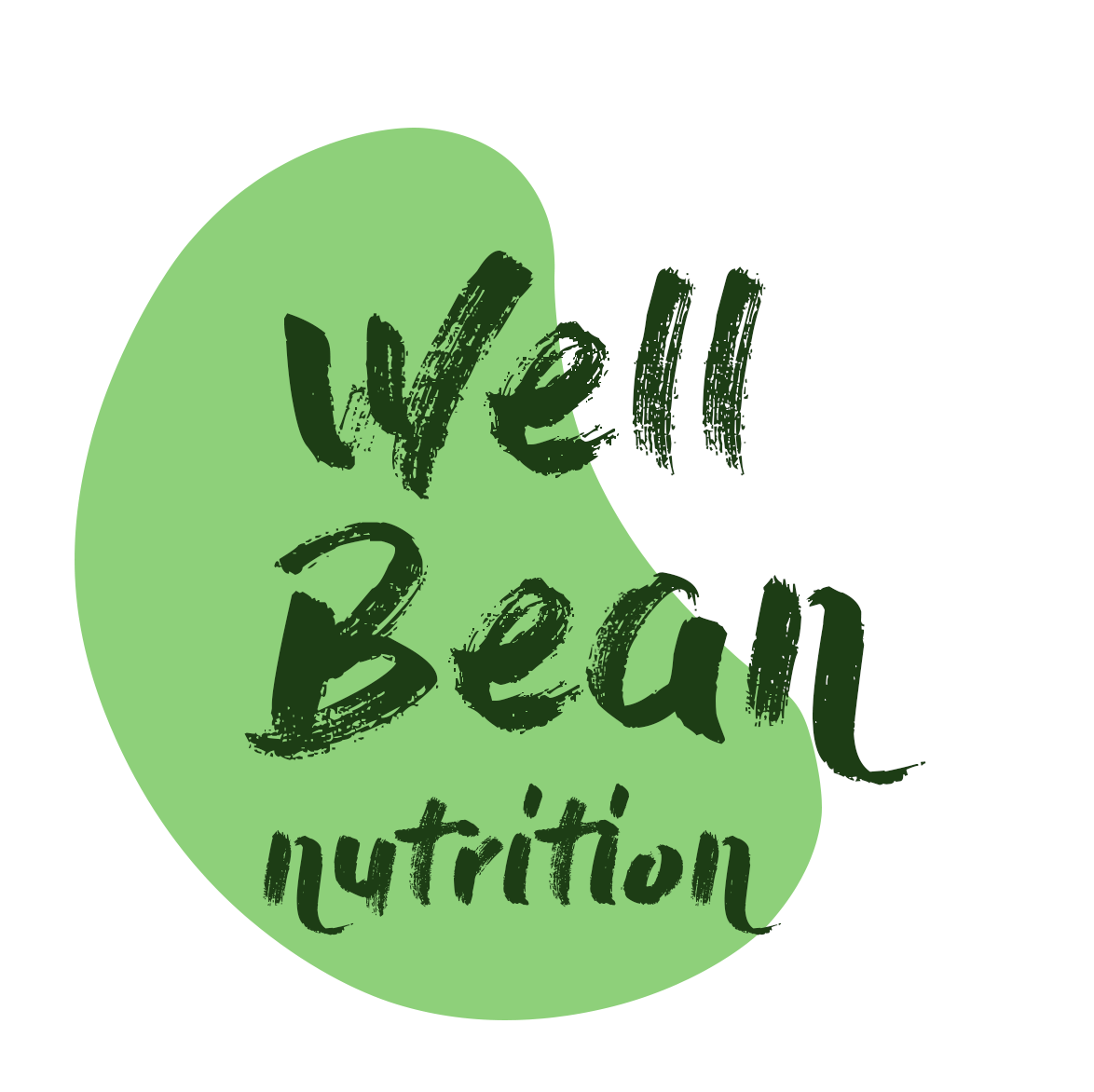I first came across a variation of this sauce whilst oogling over the work of Nobu Matsuhisa, a Japanese mastermind in the kitchen and I’ve put my own “simplifying” touches to it, to hopefully make it something we can all enjoy, in a speedy fashion, in the comfort of our own homes- it’s not quite the same obviously, but it’s pretty dang good if you ask me!
To Go Organic or Not Organic?
With all the confused media-frenzied information swirling around, sometimes it can be hard to figure out the straight facts, especially when it comes to nutrition and health, so I want to lay out, as straight as I can, my opinions on organic vs non organic food.
My predominant concerns lie in the health implications of gobbling up pesticides, antibiotics and chemicals which many non-organic foods have been subjected to.
Lets have a closer look at what this means below:
Organophosphates, widely used insecticides, have been linked to neurodevelopmental issues in children. They may affect cognitive function and contribute to developmental delays as well as other neurological effects in adults (Tsai YH & Lein PJ. Mechanisms of organophosphate neurotoxicity. Curr Opin Toxicol. 2021 Jun;26:49-60)
Glyphosate, a widely used herbicide, has been associated with an increased risk of certain cancers, particularly non-Hodgkin lymphoma. It has raised concerns due to its potential carcinogenicity. (Zhang Q, et al. The study of human serum metabolome on the health effects of glyphosate and early warning of potential damage. Chemosphere. 2022 Jul;298:134308)
Certain pesticides can act as endocrine disruptors, mimicking or blocking hormones. This may lead to hormonal imbalances, affecting reproductive health, fertility, and potentially increasing the risk of conditions like breast or prostate cancer. (Park J, et al. Interventions on Reducing Exposure to Endocrine Disrupting Chemicals in Human Health Care Context: A Scoping Review. Risk Manag Healthc Policy. 2022 Apr 26;15:779-791)
Some pesticides are classified as ‘Persistent Organic Pollutants, AKA, ‘POPs’, which can accumulate in the body's fatty tissues. This accumulation over time may contribute to immune system suppression, reproductive issues, and other health problems. (Reina-Pérez I, et al. Cross-sectional associations of persistent organic pollutants measured in adipose tissue and metabolic syndrome in clinically diagnosed middle-aged adults. Environ Res. 2023 Apr 1;222)
Toxic pesticides like neonicotinoids are putting bees at risk of extinction. Without these pollinators, our food system would be at risk.
Atrazine is a widely used herbicide linked to mammary tumors in rats, though is dismissed by the epa as being not harmful to humans- I’d like to not risk it myself though!
Even with washing, pesticide residues can remain on conventionally grown fruits and vegetables. Consuming these residues may contribute to chronic low-level exposure, impacting health over time. Choosing organic options, washing produce thoroughly, and supporting sustainable farming practices can help minimize exposure to harmful chemicals in your diet.
One of my favourite ways of side-stepping a completely empty piggy bank, whilst avoiding exposure to harmful chemicals and sprays is to familiarise myself and my clients with The Clean 15 and Dirty Dozen (detailed below). Generally I’d recommend buying the ‘Dirty Dozen’ foods as organic and ‘The Clean 15’ as normal (albeit as local and seasonal as possible):
Of course there are many ethical and economical considerations which I haven’t taken into account here and coming from a farming family myself, I am fully aware of the necessary reliance on pesticides and chemicals that farmers face when competing in a global market.
I do think though that it’s important to have these conversations to figure out a good way forward which might be able to benefit both our incredible farmers, who tirelessly work to make sure we all have food on our plates, and the health outcomes of our society too, which may ultimately alleviate pressure on our healthcare system along the way.
Sourdough Bread Pancakes with Stewed Apple
The stewed apple is a nutritionists best friend. They can contribute to gut health and reduce IBS/IBD symptoms in several ways:
1. Soluble Fiber: Apples contain soluble fibre, this type of fibre helps to regulate bowel movements supporting a healthier digestive system.
2. Pectin Content: This magical component in apples acts as a prebiotic, promoting the growth of beneficial gut bacteria.
3. Anti-Inflammatory Properties: Compounds in apples may have anti-inflammatory effects, potentially reducing inflammation in the digestive tract.
4. Easy to Digest: As with many foods, stewing apples makes them softer and easier to digest, making it a gentle option for individuals with sensitive stomachs and IBS issues.
5. Polyphenols: Apples contain an abundance of glorious polyphenols, which have antioxidant properties that may contribute to gut health and relieving IBS or IBD symptoms by reducing oxidative stress.
Fail Proof Gluten Free Filo Pastry
Here you have my totally scrumptious and unbelievably useful gluten free pastry using a few staples from the gluten free pantry:
INGREDIENTS:
25g water
3g physillium husk powder
100g plain gluten free flour blend
3g xantham gum
a pinch of sugar
a pinch of salt
15g melted butter
METHOD:
Mix the physillim husk and 20g water together and set aside to become jellified.
In another bowl mix the flour, xantham gum, sugar and salt and add the remaining water, melted butter and physillium husk mix.
Kneed until combined.
Split into manageable portions and roll out as thin as you can on a floured surface.
You can pile up the sheets on a plate with greaseproof paper in between each sheet and cover with cling film or similar to avoid drying out.
Use as you would filo.
End of Season Fermented Tomato Salsa
As my greenhouse is squeezing out the last of it’s tomato offerings, I’m feeling startlingly aware of the impending tomato respite and am desperate to eek out what I possibly can from this last crop.
Fermentation is such a wonderful way to continue to enjoy summer goods throughout the winter and to feed your gut with all the good bacteria it needs to battle through cold and stormy weather.
This fermented tomato salsa is a very simple one, using a ‘dry salt’ method, basically meaning that the good bacteria on the ingredients is allowed to proliferate, while the bad bacteria is inhibited by the salt. Once the ingredients has been allowed to ferment, you can pop it in the fridge and should be able to store it for up to 8 months.
This recipe is so versatile, but given it’s tangy salsa quality, I think it best complements creamy/soft/mellow flavours like white fish, avocado, mushroom, egg, creme fraiche, or as bruschetta etc. I’m also only giving you a basic version, but feel free to add your own twist with fresh herbs, lime zest, mango, red peppers, you name it. This is one for alll the family to enjoy.
INGREDIENTS
100g of tomatoes
10g of flaky sea salt
2 tbsp of live cider vinegar
1.5 tbsp of honey
1 small red chilli
ginger 2”
500g of tomatoes, roughly chopped
1 small onion, diced
1 small handful parsley (optional)
Disinfect a kilner jar with a clip top lid, or fermenting jar and set aside.
Blitz together 100g tomatoes, the salt, vinegar, honey, chili & ginger to make a paste.
Roughly chop the 500g tomatoes, onion and parsley (if using) and, using a wooden spoon, mix through the paste. Clean the outside of your jar and leave to ferment, out of the fridge for 2-3 days, until it tastes tangy and salsa-y. Move to the fridge and enjoy for months to come.
Phoso
I’ve been messing about in my kitchen with bits that I had spare and a happy concoction has been made- a Phoso!
It’s pretty low calorie and filllled with nutrients with all the leafy, herby goodness of a pho, but with all the probiotic benefits of a miso soup, gut soothing nutrients from the chicken broth and packed with fibre from some beautiful black bean pasta!
It’s a good one for a Monday, so you can boil up the bones from your chicken roast from the Sunday for the broth. For that, I use my pressure cooker, which slices the necessary boiling time from 8hrs to 1hr, saving not just time, but electricity/gas too. If you prefer to go vegetarian, you can always sub for a veggie stock.
As I’m kind, I’m giving away this recipe for absolutely freeeee, so please like and share to yer pals!
(serves 2 large bowls)
4 cups chicken broth/vegetable stock
4tbsp miso paste
100g black bean spaghetti
3 spring onions, sliced
small handful of mint, torn
small handful of thai basil, torn
1.5tsp chilli flakes
1/2 lime, squeezed
Siracha sauce to serve
Heat the broth/stock and mix in the miso paste. Add the black bean noodles and simmer for 7-8 minutes.
Remove from the heat and add the rest of the ingredients.
Voila! Serve!
(For some reason I don’t own a decent sized bowl at the moment, so this is what I gobbled mine from- the taste speaks for itself- snazzy crockery not needed! I do need to get some bowls though…)

















